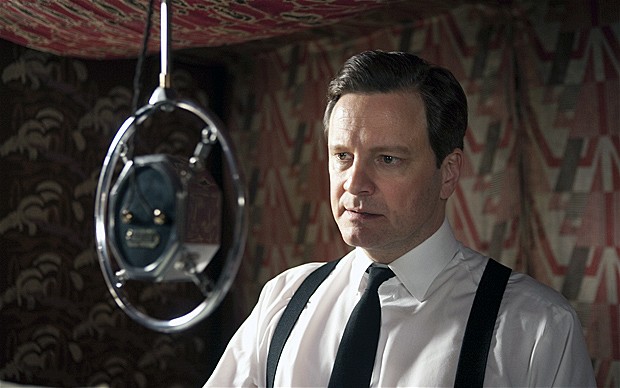Whatever your misgivings about public speaking, spare a thought for poor old George VI. He was a highly private man called to a highly public role during one of the most tumultuous periods in modern history. George spent his young years in the shadow of his glamorous elder brother Edward until he was crowned king in 1936.
The nascent technology of wireless radio had forced new responsibilities on to the King. Before he had been expected to address occasional select gatherings of worthies and notables, now he was expected to address the nation.
Weight of Expectation
When called upon to address even a small room full of people, many of us feel the weight of expectation sitting on our shoulders and the terrible dread that we might mess things up in front of an audience. This is quite literally the stuff of nightmares: to be exposed in front of our colleagues as not quite up to it. With this mind it is little surprise that many people do everything they can to avoid any public speaking engagements. However, as we journey through our careers becoming more senior, the prospect of giving presentations and speeches increases considerably.
If it’s possible to get that worked up about a small presentation, one must suppose that George’s anxieties were of a different order given that he had to address the British public on the subject of war, a task made infinitely more gruelling by the fact that he had a stammer. This would seem to be fate demonstrating quite clearly that if nothing else, she has a sense of humour; our first war-time monarch of the broadcast age had a stammer!
Tackling the Fear
If you have seen Tom Hooper’s excellent ‘The King’s Speech’, you will of course know all of this already and without wishing to spoil the film for anyone yet to see it and do see it – it’s terrific,George VI tackles his fear of public speaking by consulting a speech therapist, Mr Logue, who turns out not to be a doctor but an actor. While the King is initially horrified to discover the man he thought to be a nice respectable doctor is in fact a member of one of the least reputable professions going, the acting profession, he is won around eventually.
You may find your mind wandering down the same tracks as the King’s and wonder to yourself what possible use an actor could be. Well an actor’s job is to connect with audiences, if you’ve ever been to the theatre or cinema and found yourself captivated by a performance then you know what I’m talking about. As Mr. Logue demonstrates in The King’s Speech, the skills actors use can be taught, even to someone as unprepossessing and in the grip of public speaking fear as George VI.
Dynamic Presenting
That in a nutshell is the whole point of Dynamic Presenting, to analyse your style of presentation, pitching and public speaking to locate weak spots and to help supplement these with skills and techniques which have stood the test of time. So if you want a consultation fit for a King, even if your problems aren’t quite on the same scale as George VI’s, drop us a line and we’ll start with a chat…
Sartaj Garewal is the founder of Dynamic Presenting – a creative, leadership development consultancy, adapting theatre training to create leadership programs for business.
Dynamic Presenting – Enabling Powerful Communication
Tags: Colin Firth, fear of public speaking, Leadership Development, Matt Smith, Presentation Skills Training, Public Speaking Courses, The King's Speech, Tom Hooper

